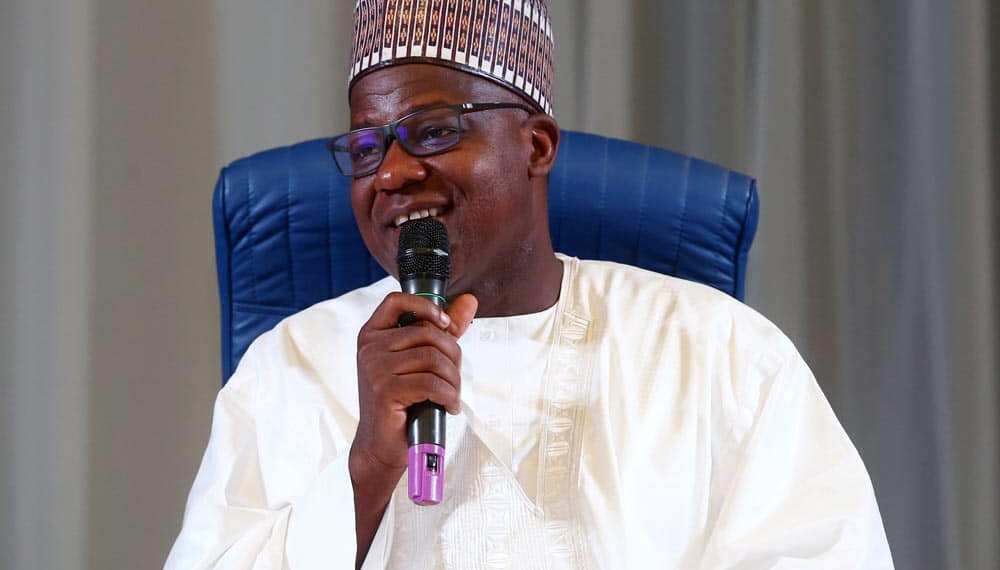Can the world ever truly be free from hunger? This deeply resonant question took center stage at the Michael Okpara University of Agriculture, Umudike (MOUAU), Abia State, where veteran agricultural economist Professor Uzochukwu Anelechi Ubaferem Onyebinama presented his vision and skepticism regarding global efforts to eliminate hunger, especially through the lens of the United Nations Sustainable Development Goal No. 2 (SDG 2).
Citing sobering figures from 2023, Professor Onyebinama highlighted that a staggering 733 million people around the world faced hunger, while approximately 2.33 billion experienced moderate to severe food insecurity. For Nigerians, these statistics underscore tough realities in local markets, rural communities, and urban centers alike—places where high prices, failed harvests, and land disputes severely impact everyday access to food.
During his 63rd inaugural lecture, titled “Tales in Quest of Freedom from Hunger,” Professor Onyebinama, now 63, drew on diverse sources—biblical passages, field data, and policy frameworks—to argue that a completely hunger-free world is unrealistic, even with the robust ambitions outlined in SDG 2. He remarked, “The scripture tells us that we must always have the poor with us, and that the poor will not cease out of the land.”
According to SDG 2, the world aims to “end hunger, achieve food security, improve nutrition, and promote sustainable agriculture” by 2030. However, Onyebinama suggested that this sequence might be overly optimistic. He recommended a more practical order: first, invest in sustainable agriculture; next, focus on improving nutrition; work toward food security; and finally, aim to reduce hunger. “If you put ‘end hunger’ first, it suggests we can wipe out hunger entirely—which, in reality, we cannot,” he asserted.
Digging deeper, he referenced the biblical story of Cain and God’s pronouncement: “when you till the land, it will no longer yield to you her increase.” For Onyebinama, this ancient notion still echoes today, highlighting that natural and human-imposed limitations will always prevent the earth from achieving its full productive potential. “No matter how hard we try, we will never get the best of the land,” he argued. Nevertheless, he believes in the possibility of freedom from hunger—which, in his terms, means ensuring at least two proper meals a day for all. “Achieving that is within reach,” he noted, “even if eradicating hunger altogether is not.”
Despite SDG2’s original intent, Professor Onyebinama noted that hunger and food insecurity have continued to rise since 2015, driven by factors such as pandemics, armed conflicts, climate change, and worsening inequality. “In 2023, about 9.2% of the world’s population faced hunger, and 2.33 billion dealt with moderate to severe food insecurity,” he recalled from FAO and global health sources. These challenges have profound impacts across Nigeria, Ghana, and much of Sub-Saharan Africa, where erratic weather, inflation, and insecurity undermine food systems.
Challenges Facing Agricultural Development in Nigeria
Professor Onyebinama’s analysis extended to the practical barriers faced by Nigerian farmers and policymakers. Chief among them is access to land—a critical foundation for agricultural production. According to him, government attitudes towards agriculture often fail to prioritize farmer needs. He criticized policies that make little provision for secure land access and argued for increased government funding for agricultural research and the development of local technologies, rather than relying on the importation of foreign solutions.
“When you import technology,” Onyebinama observed, “you end up boosting the economies of the exporting countries. Meanwhile, our own farmers lack the infrastructure and resources to produce enough food for their immediate communities.” The lack of secure land tenure, insufficient security for farmers, and frequent conversion of agricultural land for other uses—like housing estates, motor parks, and luxury developments—further constrains the sector. He stressed the importance of enforcing the Land Use Decree to prevent agricultural land from being converted for non-farming purposes.
Land Distribution and the Rural-Urban Divide
Raising fundamental questions about land allocation, Onyebinama asked why initiatives such as the Rural Grazing Area (RUGA) program have encountered fierce resistance in southeastern Nigeria and elsewhere. He argued, “Land is a scarce resource for agricultural production in Nigeria.” Out of an estimated 98 million hectares suitable for agricultural use, only about 70 million are actually workable, and the distribution is far from even.
For context, Niger State occupies about 76,363 square kilometers—accounting for nearly 10% of Nigeria’s total land area, with about 85% of its land arable. By contrast, the five states of the South East collectively make up only 29,388 square kilometers and face much higher population pressure. “Niger State alone is over two and a half times the size of the entire South East,” Onyebinama pointed out. This imbalance, he claims, undermines arguments for ranches or RUGA settlements in the region and underscores the necessity for more equitable land use policies.
Pathways to Food Security: What Needs to Change?
To move Nigeria, Ghana, and other West African countries closer to real food security, Onyebinama emphasized a multi-pronged approach:
- Government investment in agricultural research and local technology development
- Secure land tenure for farmers, free from arbitrary seizure or conversion
- Policies that prioritize food crops and productive agricultural uses over non-essential development
- Improved infrastructure—such as rural roads, irrigation systems, and storage facilities—which would help reduce post-harvest losses and bring products from the farm to market more efficiently
- Rural development initiatives that address the needs of smallholder farmers and rural communities, and counter the lure of urban migration
Professor Onyebinama made it clear that true transformation in the food system won’t come merely from more international conferences or grand declarations but from practical action on the ground. “Investments in agriculture are vital not only to boost food production but also to advance the quest for freedom from hunger—however we define it.”
Expert and Institutional Perspectives
The MOUAU Vice-Chancellor, Professor Maduebibisi Ofor Iwe, chaired the session and echoed Onyebinama’s main themes. He described the lecture as “timely and well delivered,” while expressing his own belief that “freedom from hunger is realistic, but the ultimate end to hunger is beyond reach due to land and other limitations.” He further urged policymakers to put agricultural development at the forefront of both national and state policies, with a special focus on rural communities and dedicated funding for research-driven process technologies.
Reacting to the lecture, several stakeholders at the event called for increased collaboration between universities, research institutes, and government agencies to ensure that findings from academic research are meaningfully translated into real-world policies and interventions. As one rural extension worker in attendance put it, “The biggest barriers our farmers face are not just pests and drought—they’re policy neglect and lack of access.”
Comparing Nigeria’s Struggles With Other African Countries
Nigeria’s situation echoes across many African countries—especially Ghana, Kenya, and Ethiopia—where agricultural land scarcity, rapid urbanization, and policy uncertainties hinder the fight against hunger. According to the World Bank and FAO, sub-Saharan Africa is home to more than half the world’s undernourished population. Countries that have prioritized agricultural research, localized technology, and rural empowerment (such as Rwanda and Ethiopia in recent years) have recorded more significant gains in food production, even if hunger is not entirely eradicated.
What Lies Ahead?
Professor Onyebinama’s remarks invite both policymakers and the public to set realistic expectations. The path to ending hunger globally may be too steep, but significant progress is possible if strategies are honest, locally grounded, and built upon practical reforms. For Nigeria, that means shifting the focus away from imported solutions and urban-centric development, toward empowering local farmers, defending valuable arable land, and developing home-grown agricultural innovations.
Do you think Nigeria can achieve freedom from hunger—even if complete eradication remains a dream? What practical solutions would make the most difference in your local community? Drop your thoughts in the comments and join the conversation!
Have a story or agricultural insight you want to share or sell? We’re eager to hear from farmers, researchers, and concerned citizens with stories from across Nigeria, Ghana, and West Africa! Reach out to get your story featured or discuss story sales at story@nowahalazone.com.
For questions, feedback, or general support, connect with us via support@nowahalazone.com.
Stay up-to-date with the latest updates on food security, agriculture, and development by following us on Facebook, X (Twitter), and Instagram.
We value your opinions and local perspectives—let’s work together for positive change!










